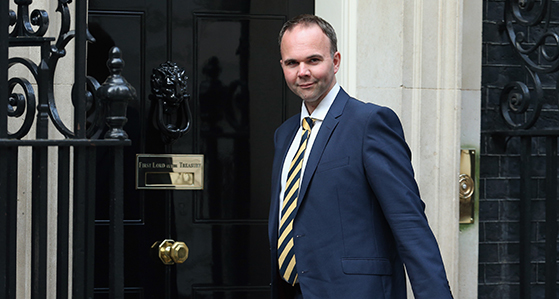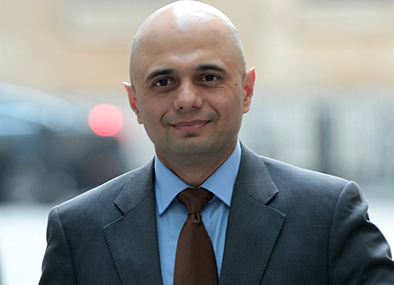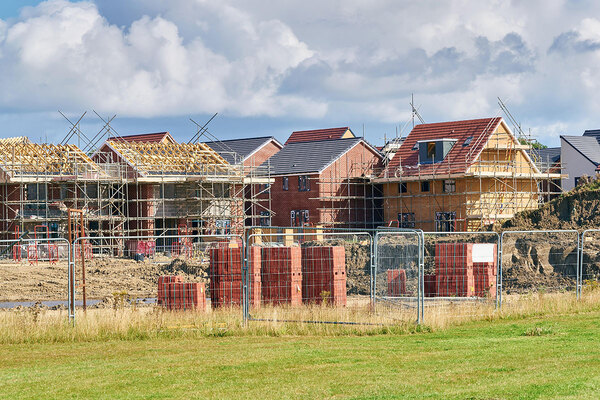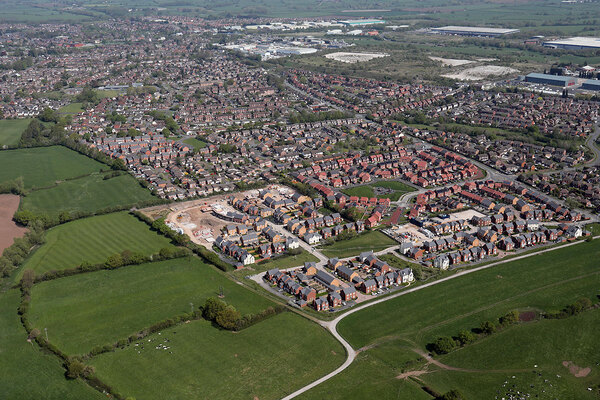Housing minister: HAs free to choose tenure but government expects to maximise supply
Housing minister Gavin Barwell has said providers will get total flexibility in their bids for grant funding - but veered away from support for social rent by stressing that government will be looking to maximise the supply it gets for its money.
Speaking to Social Housing today, Mr Barwell also indicated that key issues including the social and affordable housing rent policy and the future of the Affordable Homes Guarantees Programme will feature in the highly-anticipated Housing White Paper.
Mr Barwell was speaking after Chancellor Philip Hammond’s autumn statement yesterday set out a raft of funding plans to support housing and infrastructure, much of which has been welcomed by the housing sector.
Government said it means it now expects to double annual capital spending on housing over the course of this Parliament.
Part of this is an extra £1.4bn of funding to deliver 40,000 affordable homes, which can be used for a range of housing types including affordable rent, shared ownership and rent to buy. This is aimed at seeing starts on site by 2020/21.
It comes in addition to the remaining funding in the £4.7bn Shared Ownership and Affordable Homes Programme 2016 to 2021 programme, where restrictions on tenure will also be relaxed ‘to meet the housing needs of people at different stages of their lives’.
Mr Barwell said the latter means targeted figures set out last year, such as 135,000 homes for Help to Buy shared ownership, no longer stand.
For the affordable housing funding, Mr Barwell said there will be no restriction on tenure, but that the government will be looking to maximise its return.
‘I think the likelihood is we are looking at affordable rented rather than social rented; there’s no specific bar on tenure, there is flexibility.
‘But clearly the criteria which we look at is about maximising the supply that we get [for the funding].
‘The reason the government has looked more at affordable rent than social rent is that we can get more supply for that amount of money.’
Asked whether he had a view on how many homes housing association are capable of delivering, Mr Barwell said it is not for him to ‘put a cap’ on the number, but suggested that more organisations could follow the example of the likes of L&Q.
He added that a number of associations are managing existing stock and not developing, adding that they want as many organisations as possible building homes.
While starter homes did not get a mention in the autumn statement, Mr Barwell said the government remains committed to the programme in line with its manifesto pledge, while reiterating that the latest announcements are about broadening the tenure options.
Rent policy
Asked whether he would take any action to address the social and affordable rent cut - which many associations say is constraining their development capacity - Mr Barwell said he could not talk about what was in the Housing White Paper.
He stressed that he ‘recognises the concerns’ around the rent cut, but added that associations also recognise from a HM Treasury perspective that the levels of rents they charge impact the housing benefit bill.
Asked about an extension to the £3.5bn Affordable Homes Guarantees Programme, which uses the government balance sheet to underpin finance and secure cheaper rates, Mr Barwell agreed that it had been a successful scheme but again said he could not comment on it ahead of the white paper.
The paper is expected to be out ‘in due course’, but no date has been set.
Government said the funding programmes, along with a number of announcements including a £2.3bn Housing Infrastructure Fund to unlock 100,000 homes, amounted to investment of over £7.2bn in housing.
It also includes £1.7bn of funding to pilot ‘accelerated construction’ to speed up house building on surplus public sector land and £1.8bn ‘of extra spending by housing associations from sources other than central government’.
A total of £3.15bn was announced for London to support 90,000 homes.
Mr Barwell said that figure covers the 2015-21 programme so includes some existing funding, adding that it represents 43 per cent of the existing budget for England. A portion of the new £1.4bn funding will also go to the capital in addition to the £3.15bn.
Other changes include a regional pilot of the Right to Buy for housing association tenants; the launch of a consultation on banning letting agents from charging fees to tenants; and doubling the size of the Rough Sleeping Fund from £10 million to £20 million
The autumn statement followed announcements that pay to stay will no longer be compulsory for council tenants, while the local housing allowance cap will apply to all universal credit tenants.
Communities Secretary, Sajid Javid said: ‘With a doubling in capital spending, we are injecting the stimulus the market needs for a step change in the number of homes being built in the places people want to live - both in this Parliament and beyond.’
RELATED







